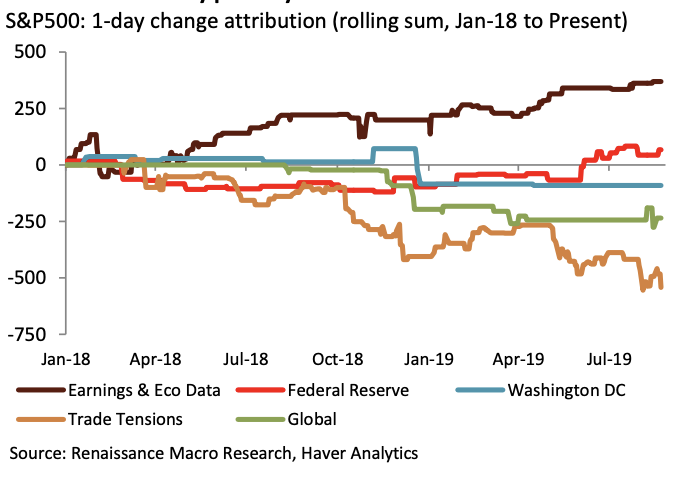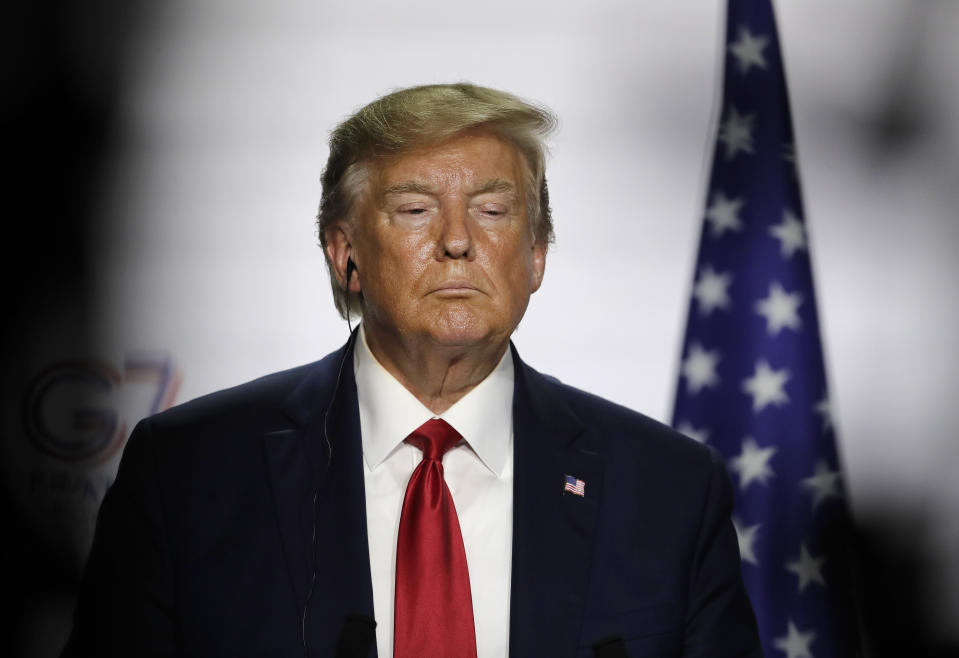Why Trump’s immunity to big market losses spells trouble for Wall Street
Trump is shattering conventional wisdom among many investors that “equity prices act as a constraint on the president’s trade agenda,” says Neil Dutta, head of economics at Renaissance Macro Research.
Renaissance Macro has new research illustrating how many of the down days on Wall Street this year are the direct result of bad news stemming from Trump’s trade war with China. Since July, the S&P 500 has lost roughly 135 points because of the trade war, according to its data.

Trump still cares about big stock market losses, but “not as much as people think,” says Dutta. Trump said last week that short-term economic pain inflicted on the U.S. will not deter him from his tariff strategy. “China has been ripping this country off for 25 years, for longer than that and it’s about time whether it’s good for our country or bad for our country short term. Long term it’s imperative that somebody does this,” he said.
The Dow soared more than 200 points on Monday after Trump said China and the U.S. are getting back to the negotiating table. At the G7 summit standing next to French President Emmanuel Macron, Trump said China wants to make a deal “very badly” and that “[he’s] not sure they have a choice.”
Investors, however, may have been too eager to reward the president’s optimism with a lift in stocks. Trump has no plans to meet with Chinese President Xi Jinping directly and he’s recently shown an ability to stomach bigger market losses. The more than 600-point drop in the Dow following China’s retaliatory tariff escalation Friday only compelled Trump to hit back with higher tariffs. Trump said the $300 billion worth of imports from China that were set to be taxed at a 10% rate on Sept. 1 will now be taxed at a 15% rate; and starting Oct. 1, the $250 billion worth of Chinese imports currently taxed at 25% will be taxed at a rate of 30%.

China’s 2020 miscalculation
Dutta says if Xi’s strategy is to resist a trade deal in the hopes of a Trump 2020 election defeat, he could be making a miscalculation. Results of a recent Pew Research Center survey indicate Americans believe economic ties between China and the U.S. are poor. And what’s more, unfavorable opinions of China have reached a 14-year high. According to the survey 60% have an unfavorable opinion of China, up from 47% in 2018.
There’s also no guarantee that a Democratic president will drop Trump’s tariff strategy. Although presidential candidate Bernie Sanders was critical of Trump’s latest escalation of tariffs over the weekend, he asserted that “of course” he, too, would use tariffs to reach a deal with China.
In the meantime, companies are slowly trying to move their global supply chains out of China. As more American companies do this, Xi continues to lose leverage.
More from Sibile:
These people are most likely to lose their jobs first in a recession
How Fed Chair Powell can avoid a stock market nightmare
Why Trump’s efforts to keep immigrants out hurts the U.S. economy
